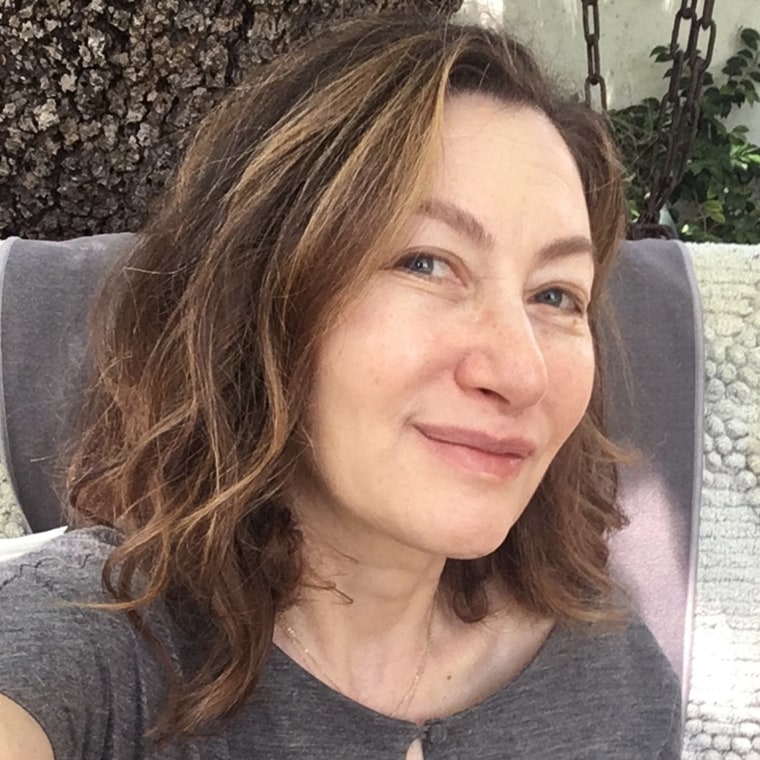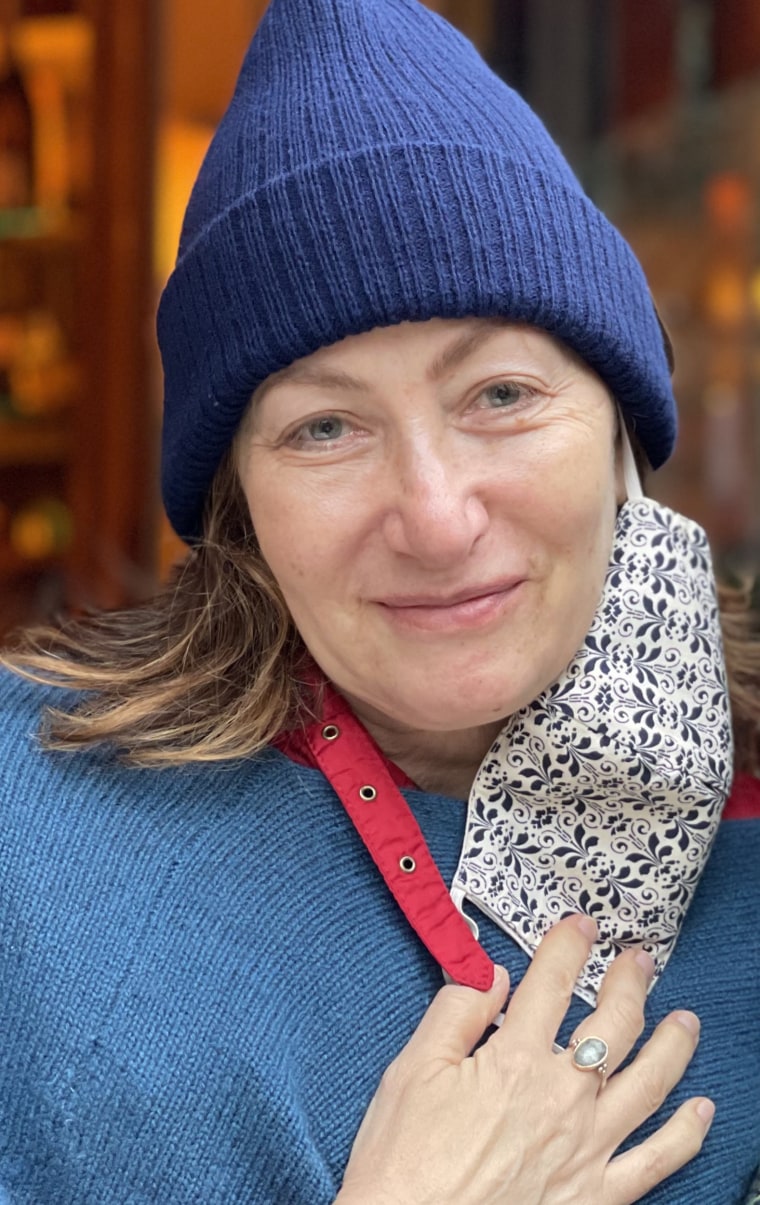Annabelle Gurwitch, 59, is an actress and author who was diagnosed with stage 4 lung cancer in 2020. She lost her employer-sponsored health insurance the same year. She writes about dealing with life's crises in her new book, “You're Leaving When? Adventures in Downward Mobility.” Gurwitch recently shared her story with TODAY.

You never know where you're going to be when your life changes. I was on the side of a freeway when a doctor told me there was something suspicious on my lungs.
In May 2020, my child, who is 23, graduated from college on the East Coast and came back home to Los Angeles. We would quarantine in separate parts of my house and then get COVID tests and combine our household.
We went to Dodger Stadium to get tested, but it was an overly long wait, so we left. We then drove to a random urgent care in a mini-mall to get tests and the staff asked if we had any symptoms. I mentioned I’d had a persistent little cough.
Afterwards, the doctor said I should have a chest X-ray because I had a cough. I was sure it was an upsell, like when you go to cosmetic counter for mascara and they also sell you on a moisturizer. I thought, “Oh my God, you go to an urgent care and they talk you into an X-ray.”
But my child said, “Mom, you do cough a lot.” So I got the X-ray and the doctor said it looked fine.
On the way home, my car broke down and we were on the side of the freeway when the phone rang. I put it on speakerphone and the doctor said, “I made a mistake. I'm so sorry. You have a mass on your lungs.”
What?
That set in motion tests, scans and a biopsy. Suddenly, I had this appointment scheduled with an oncologist on Zoom because of COVID and he tells me it's stage 4 lung cancer and they will do the best they can for me, for as long as they can.
Lung cancer was never on my radar as it isn’t for most people, including people who are non-smokers like me. I'm somebody who goes to the doctor every year. There was no difference in my blood work. I exercise every day, I’m thin, I work out, I look healthy. So it's completely out of the blue.
I had that persistent little cough for a few months, which I thought was acid reflux. The thing about lung cancer is that you are often asymptomatic when you are diagnosed. My doctor feels I might have had it for maybe five years. The longer I lived with this undiagnosed, the more chance that it would have spread further. I wasn't going to go to a doctor during COVID, so there’s this horrible irony that the coronavirus — seeking out that test — saved my life.

I have non-small cell lung cancer. The main tumor is the size of a clementine. It has spread to both lungs.
Like so many people in the U.S., I lost my employer-sponsored health insurance last year. I immediately went to the open market and went from paying $600 a year to $1,200 a month. I'm a very privileged person, I have savings. This is a huge strain on my budget, but there are people in much worse circumstances.

When you get a diagnosis like this, you go into an emotional freefall — I could barely function, my car was repossessed, I wasn't paying attention to my finances — and on top of that in this country, people have to worry about how they will afford this care. Medical bills are the leading cause of bankruptcies in the U.S.
I’m six months into a treatment with a drug that targets my gene mutation. I take a pill a day and have some minor side effects — when I get tired now, I'm really tired — but I'm able to live my life pretty much the same way as before.
But lung cancer eventually figures out the medication, so the longest anyone has been on it is five years. When this medication stops working, the cancer will start mutating again and I will have to get chemo and radiation.
I get a scan every five months, which leads to “scanxiety.” The minute the scan shows a progression of the disease I will have to switch treatments. That's when my life is going to change again. It's terrifying. So two weeks before the scan, you start thinking about it every day.
Lung cancer is going to kill more women than any other cancer, including breast cancer, in the U.S. It's usually diagnosed late, but the hope is that better tests will be developed so early diagnosis will be key in saving women's lives.
There isn't this awareness of lung cancer and awareness brings money to research. This is why I'm talking about it. I also want to encourage people to keep to keep up with their regular health care. Many people have skipped appointments during COVID and many now have gotten in the habit of not going to their doctor.
There's also so little understanding about lung cancer. My gynecologist and my dermatologist both asked me, “How long did you smoke?” There's not another cancer that people assume you're at fault — it's “You did something wrong to get this,” which is another reason why there's a stigma with lung cancer.
This is why people don't want to share the diagnosis. But I want to do this for others, young women in particular, because I want to give them a longer lifespan.
This interview was condensed and edited for clarity. Gurwitch is a spokesperson for the Lung Cancer Foundation of America, which is sponsored in part by AstraZeneca, the company that makes her medication.

